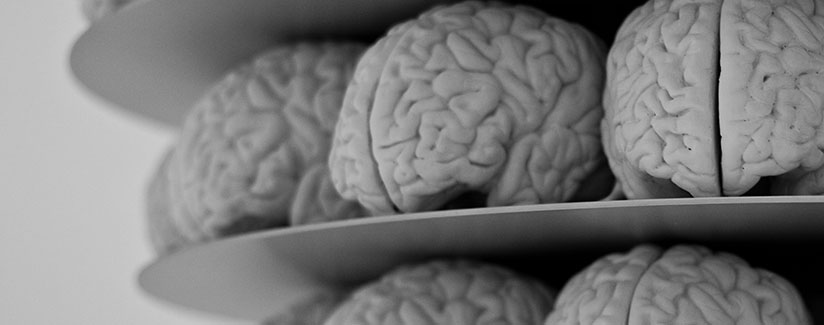
Do Fatty Foods Cause Brain Damage?
When we asked Dr. Melinda Sothern about new studies, linking fatty foods to brain damage, she indicated there is a lot of truth to these studies. She said adults and children alike should be aware of what this means, and educated on best practices (beyond avoiding fatty foods) to avoid unwanted changes to the brain.
Do fatty foods cause brain damage?
Dr. Melinda Sothern:
This is plausible. Simply stated, your environment and behaviors (like eating fatty foods) can alter the makeup of your brain – which can ultimately cause unwanted changes to brain tissue and chemicals. Since this is emerging information, we are still trying to understand all the implications.
Consuming certain unhealthy fats has been linked to neurological changes that promote obesity. Since the brains of living humans can’t be explored, this idea is being studied in lab animals at this point – primarily rats and mice. Usually, there is study looking at specific genes that have changed over time because of the environment or the person’s behavior. The changes to the genes cause the gene receptor (the part of the body that receives the gene messages) to not receive the gene or to receive a different gene. This is called a gene variance. When this happens there is a potential for the brain to develop in a different, undesirable way that may make the individual more likely to develop obesity.
How do fatty foods cause brain damage?
Dr. Melinda Sothern:
For example, let’s say for one year’s time, you are a real couch potato. You don’t exercise, and you eat a lot of unhealthy foods. You eat a lot of sugars and saturated oils, or partially-hydrogenated vegetable oils. In new research studies these unhealthy sugars and oils can disrupt neurological messengers and metabolism messengers. Once they are disrupted it may not be possible to repair the messengers even if after that year, you change your behavior and change your eating habits. At that point, the damage may already be done.
One way the damage may show up is that it may affect the part of your brain that listens to the messages coming from the stomach and the intestines. Those messages may come to the brain differently because you over-indulged in unhealthy fats or ingested too much refined sugar, or didn’t get enough physical activity. An unhealthy lifestyle doesn’t just affect a person in real time. Changes that promote a variation in the genetic messengers that control appetite may be sustained throughout the development of a child’s life. This is why scientists suggest that individuals who experience an altered genetic profile may have to manage their weight throughout their lifetime.
What about obesity?
Dr. Melinda Sothern:
Obesity becomes very resistant to healthy lifestyle changes such as a balanced, low-calorie diet and exercise. This is particularly true in growing children. It’s not as well understood in adults, but we do know that there are key periods where all of the neurochemicals (chemicals that send messages to and from the brain to all of the other parts of the body) reset during childhood. Those periods are at birth, toddler age, right before puberty, and then again during puberty. What the child does during all of those periods will determine their physiology, biology, hormones and activity levels/potential as adults. What current studies are finding is that the resetting of these neurochemicals is greatly affected by the interaction of the child’s behavior, environment and genetics.
If someone is obese, is the regular method of diet and exercise to try to lose weight more difficult?
Dr. Melinda Sothern:
Yes. Your genes may have been re-wired or programmed for a certain part of your brain that would typically tell you, ‘You’re full! You’ve eaten enough!’ That particular part of the brain has been re-programmed due to some insult. The causes of insult may vary. The potential causes could be too much fatty food, too much sugar, not enough activity, or some other factor, like a child whose mother smoked during pregnancy, or a child who wasn’t breast fed. The insult is what happens to an individual as they are developing, which can alter the gene variance. We are currently studying these insults and their effects on the brain, and more specifically, inflammation. Inflammation leads to a higher risk for obesity and a higher risk of asthma.
Can you explain a little bit more about how the insults work?
Dr. Melinda Sothern:
Most people understand basic genetics. For example, if you have blue eyes, then you have the gene for blue eyes, and you inherited that from your parents. This concept is a little more difficult to understand than those basic genetics. Basically, there are certain genes that need to be received by a receptor at certain times of your development, and because you were in a less than healthy state during that time, that gene isn’t received or perhaps a different gene is received, which may alter your ability to be healthy. So, the insult is your unhealthy choices and the outcome is an altered genetic profile that may make you more prone to obesity and other related diseases, such as diabetes and heart disease.
So how can we keep ourselves healthy?
Dr. Melinda Sothern:
In my opinion, eating healthfully is no longer a choice; it is an absolute necessity. If you eat unhealthy foods in excess, you’re more likely to become obese, and that, in turn, is going to drive other health problems like type 2 diabetes, heart disease, cancer, high blood pressure and stroke. You need to select healthy, highly nutritious foods.
- Select foods with healthy fats – monounsaturated fatty acids like olive oils and avocados. Incorporate vegetables and fruit into your diet, which provide antioxidants.
- Limit the amount of saturated fat. Foods that contain saturated fats like meat, milk and eggs, also contain valuable nutrients, so don’t stop eating those foods, just choose the versions with lower saturated fats. For example, instead of choosing ribeye with higher saturated fat, choose a cut with lower saturated fat such as sirloin or round steak. The same is true for milk – choose fat free.
- To reduce your intake of calories, choose fresh fruits and vegetables and lean protein, such as chicken, fish and seafood.
It’s important to remember that there are many benefits of making positive lifestyle changes no matter how unhealthy you’ve been in the past. Scientists don’t know yet if it is possible to undo prior alterations in the brain due to unhealthy lifestyle choices. However, they do know that healthy eating and physical activity will help manage chronic diseases, such as diabetes, hypertension and heart disease and, if begun early enough, may actually prevent them from developing. Even more important are the mood benefits you’ll gain from eating healthy and being physically active. Positive changes in your mood are associated with lower inflammation and a better immune system. Together these will lead to decreased risk for developing chronic disease and an increased ability to manage your condition.
For more information on healthful choices, read Healthful Eating: It’s not rocket science and What does the new MyPlate icon from USDA mean for consumers? Also read Trim Kids (Harper Collins Publishers).
“Brains” by Neil Conwaymizo is licensed under CC BY 2.0.


























